Retro Replay Review
Gameplay
Arcade Classic 1: Asteroids / Missile Command delivers two of the most addictive arcade shooters ever released, bundled together with faithful reproductions of their original mechanics. Asteroids offers simple yet satisfying controls: rotate, thrust, and fire to clear clusters of fragmented space rocks before they overwhelm your small, agile ship. Each fragment operates on realistic inertia, creating tense, edge-of-your-seat moments as you dodge and weave through rocky debris while blasting your way to the next wave.
(HEY YOU!! We hope you enjoy! We try not to run ads. So basically, this is a very expensive hobby running this site. Please consider joining us for updates, forums, and more. Network w/ us to make some cash or friends while retro gaming, and you can win some free retro games for posting. Okay, carry on 👍)
Missile Command ups the ante with a defensive challenge: protect your cities from an escalating barrage of incoming warheads. You have a limited number of anti-missile batteries, and each shot counts. Timing and target prioritization are essential. The intuitive cursor-based targeting system feels right at home with modern controllers, yet it retains the pinpoint accuracy of the original trackball-based arcade experience, demanding quick reflexes under pressure.
The compilation includes adjustable difficulty settings and optional augmentations—such as screen filters and aspect ratio toggles—that enhance playability without compromising authenticity. Leaderboards record high scores for both games, fostering a competitive spirit whether you’re chasing personal bests or vying with friends. Overall, the gameplay shines through its timeless design, proving that simple rules can yield infinite replay value.
Graphics
Visually, Arcade Classic 1 stays true to its arcade roots by preserving the crisp vector lines of Asteroids and the stark, pixel-art visuals of Missile Command. On modern displays, the games can be played in their original resolution or upscaled with scanline and curvature effects, invoking the nostalgic glow of vintage CRT cabinets. These graphical options allow purists to experience the classic look or newcomers to enjoy a more polished presentation.
The black-and-white vectors of Asteroids are rendered with impeccable clarity, and the glowing outlines of your ship and the rocks are as distinct as they were in the 1979 original. Missile Command’s color palette remains faithful to the 1980 release, with bright orange explosions, teal missiles, and a stark, minimalist backdrop that keeps the focus squarely on the action. Even small details—like the brief flash of city destruction—retain their impact.
Loading screens and menus receive a subtle modern facelift, but they remain unobtrusive and intuitive. The transition animations between games are smooth, and the title screens include authentic recreations of the arcade marquees. While there are no full-motion intros or cinematic cutscenes, the raw, unembellished visuals perfectly encapsulate what made these titles stand out in their heyday: bold design, clear feedback, and an emphasis on gameplay over graphical spectacle.
Story
Although neither Asteroids nor Missile Command features a traditional narrative, each game establishes its scenario through evocative premise alone. In Asteroids, the story is told wordlessly: you pilot a lone spaceship in an uncharted region of space, confronting a relentless field of celestial debris. The lack of exposition reinforces the immediate stakes—survive as long as possible against ever-increasing odds.
Missile Command presents a more pressing, Earth-bound narrative: cities are under siege from a barrage of incoming intercontinental missiles. As the planet’s last line of defense, you bear the weight of humanity’s survival on your shoulders. The stark statement “THE END” displayed when all cities fall dramatizes every missed shot, transforming each playthrough into a high-tension drama of defense and failure.
Combined in this compilation, the two games convey a minimalist approach to storytelling. There are no characters with dialogue or branching plots—just pure, unfiltered conflict. Yet this simplicity is core to their appeal. Players craft their own narratives through personal triumphs and narrow escapes, recalling the thrill of neighborhood arcade competitions and the pride of etching initials atop a local high-score table.
Overall Experience
Arcade Classic 1: Asteroids / Missile Command is a compelling trip through gaming’s early years, offering both historical significance and enduring entertainment. The compilation strikes a careful balance between preserving authentic arcade play and integrating modern conveniences like save states, screen filters, and online leaderboards. These additions smooth out some of the original hardware’s physical limitations without diminishing the core experience.
For newcomers, these games serve as perfect introductions to the arcade shooter genre: easy to learn but hard to master. The minimalist controls and straightforward objectives lower the barrier to entry, while the escalating difficulty curves ensure that seasoned veterans will still find themselves challenged. The split-pack value also means that if one game begins to feel repetitive, you can seamlessly jump into the other for a fresh breath of adrenaline-fueled action.
Ultimately, Arcade Classic 1 is more than a nostalgia trip—it’s proof that compelling game design transcends graphical sophistication and narrative complexity. Its twin offerings deliver pure, unfiltered arcade joy that remains as addictive today as it was decades ago. Whether you’re seeking to relive childhood memories or discover these seminal titles for the first time, this compilation is an essential addition to any retro gaming collection.
 Retro Replay Retro Replay gaming reviews, news, emulation, geek stuff and more!
Retro Replay Retro Replay gaming reviews, news, emulation, geek stuff and more!

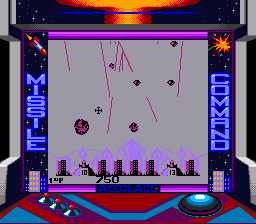
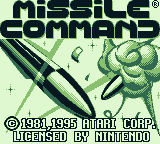

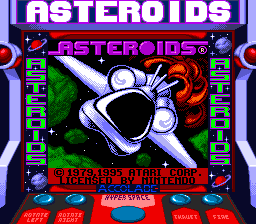
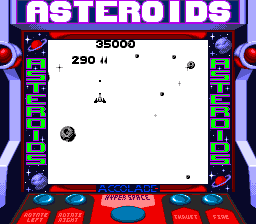

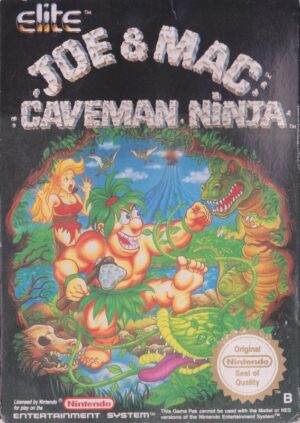

Reviews
There are no reviews yet.